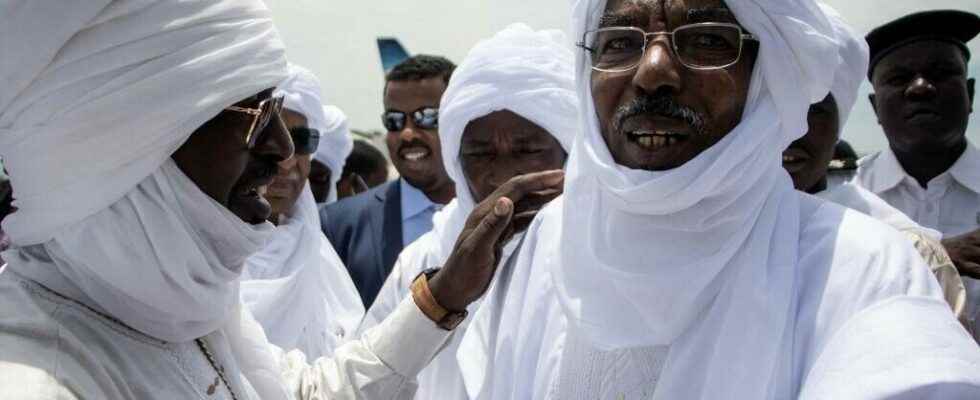These are two great figures of the rebellion of the last ten years who returned to Ndjamena this Thursday to participate in the opening of the inclusive national dialogue which opens this Saturday. Timan Erdimi (67) and Mahamat Nouri (75), two rebel leaders with similar political backgrounds.
These two personalities were close to two former presidents, recalls our correspondent in Ndjamena, Madjiasra Nako. Mahamat Nouri was one of the first companions of Hissène Habré in the 1970s when he fought the regime of François Tombalbaye. During the reign of Hissène Habré from 1982 to 1990, he was one of his main collaborators.
Timan Erdimi accompanied him to Idriss Deby as soon as he came to power in 1990 and helped him put in place the political system which would rule Chad for more than thirty years.
In the mid-2000s, the two men, who had become important figures in the regime of Idriss Deby, rebelled against the third term that the president was preparing to run for and created two rebel movements from Sudan. They then form a coalition and arrive at the gates of the presidential palace but are pushed back in extremis.
Defeated militarily in May 2009, they will go into exile: Mahamat Nouri in France, and Timan Erdimi in Qatar.
Since February 2008, this is the first time that the two men have set foot in Ndjamena again, this time without weapons in their hands.
The opening of a dialogue promised as inclusive
Why are these returns symbolic when we are a few days away from the start of the national dialogue? Response with Hoinathy Remadji, Senior Researcher for the Institute for Security Studies.
This return is symbolic, but at the same time, it is a logical continuation of the agreement that was initialed by these movements in Doha. It was fitting for the leaders of these movements to join the dialogue process by going to Ndjamena as they did. On the part of the transitional government, it is also a way of showing goodwill […] Considering the weight of these moves, having them around the table is important. […] This dialogue should not be limited to the presence of the politico-military. This dialogue is thought of as an inclusive dialogue going well beyond the politico-military. There are other movements in this country that have taken other paths of protest.
While the dialogue between the civil opposition, the rebel groups and the ruling junta should open this Saturday in N’Djamena, the Wakit Tamma platform is maintaining its demonstration scheduled for this Friday, in the same way as the political parties Les Démocrates and the Alliance for Democracy, Integrity and Freedom, and others. The authorities had decided to ban this demonstration arguing that the request for authorization was not filed within the legal period. ” It’s wrong “replies Max Loualngar, coordinator of Wakit Tamma citizen actions. He says protesters will be on the streets until the dialogue is truly inclusive.
The power persisted in maintaining the dialogue with a quota tailored to its measure, essentially taking over the former tenors of the defeated regime. So if [ce dialogue] is sovereign, it would be the sovereignty of these 1,400 people against the Chadian people. One would have expected that in this transition, decisions would be made by consensus. However, it has been an unlimited diktat since April 20, 2021. If we are not in the room, we will be in the street.
Max Loualngar: “this dialogue is by no means inclusive”
At the head of the Transformers party, a member of Wakit Tamma, Success Masra also believes that most of the participants in the dialogue are close to the junta: “ We can’t be judge and judged “, he says to RFI. He welcomes the progress made by the government which guarantees that the dialogue and the resulting resolutions are sovereign, but for him this remains insufficient, he does not despair of being able to integrate the dialogue.
Sovereignty without a content in terms of participants is a sovereignty emptied of its meaning, hence our request to complete this sovereignty
Félix Nialbé Romadoumngar, the former leader of the opposition in the Chadian Parliament, president of the Union for Renewal and Democracy (IRD), wishes the sincerity of all the participants in the dialogue and does not rule out subsequently integrating those who do not participate.
The government’s decision to make the national dialogue sovereign is to be welcomed and I encourage the leaders to make effective respect for what they say. The resolutions of this dialogue will have to be respected. This is what can lead the country to stability.
Felix Nialbe Romadoumngar
